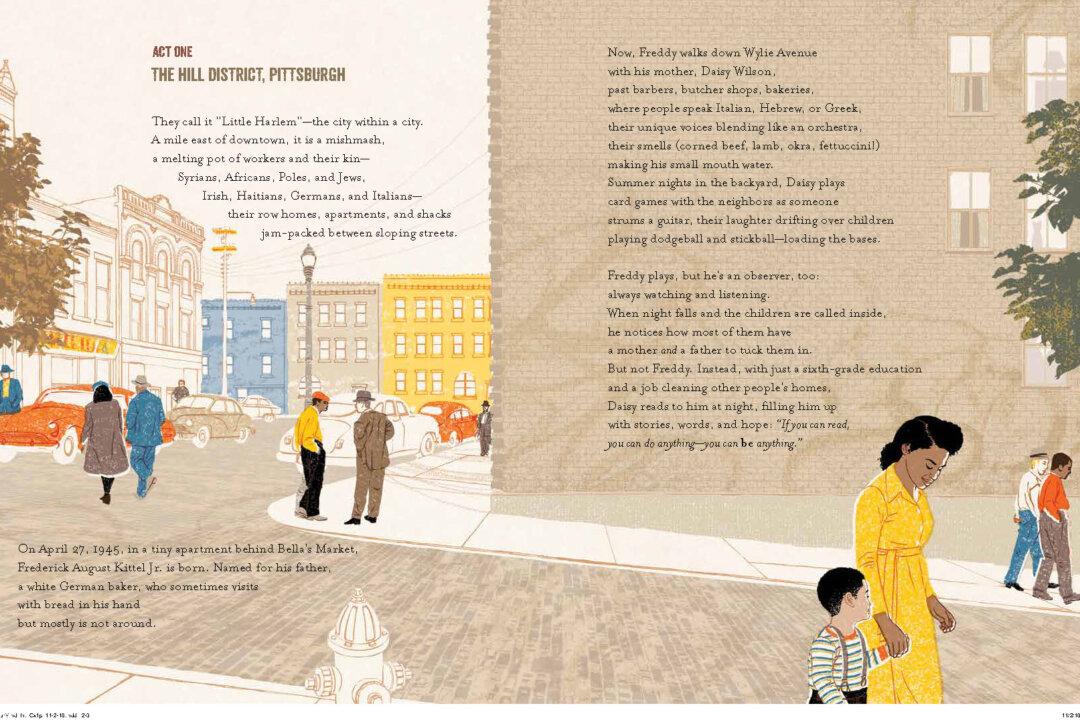A key element of any biography is the author’s ability to truly capture the essence of the subject, and then pass on that understanding to readers. This attribute is even more important for a children’s book, as younger audiences are notorious for short attention spans; they have little patience for long-winded pontifications. Author Jen Bryant expertly delivers with the insightful “Feed Your Mind: A Story of August Wilson.”
The book explores August Wilson’s life from his childhood in Pittsburgh during the 1940s and ’50s to his emergence as a successful and later celebrated playwright. Frederick August Kittel Jr. was born to a mostly absentee white father and a black mother who took in washing to make ends meet. The two-time Pulitzer Prize winner passed away in 2005 at the age of 60, and is most notably remembered for his 10-play cycle that explores the black experience in America during each decade of the 20th century.





